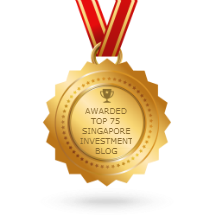The UIS Story - Closed-End Fund vs Open-End Fund
The EGM held by UIS yesterday had set me thinking about Closed-End Fund vs Open-End Fund. I mean, most investors are familar with open-end funds as there are many out there like most unit trusts. Basically the difference between the two is that closed-ended funds are not available for creation/cancellation of units/shares after IPO. Effectively, the fund is "closed" after listing and shareholders will have to sell their shares in the market after listing if they wish to liquidate their holdings. They cannot go to the fund manager and redeem their units. Similarly, the fund manager of a closed-ended fund is not likely to issue new units for subscription for interested unit holders after IPO.
So what is the advantage of a closed-ended fund like UIS over open-ended fund ones like most unit trusts/ETFs?
1. Fund manager do not have to worry about subscription and redemption of units/shares. This basically saves them the headache of managing fund inflows and outflows due to investors' actions. They can avoid selling assets during market downturn in order to meet redemptions from panic sellers. They can also avoid huge cash inflows during market bull runs and having being "forced" to invest in a heated market or hold too much cash due to no investment ideas.
2. Fund manager will have to increase the asset in the fund via his stock picking and investment skills and not via attracting new investors into the fund. The skill of the fund manager thus become an important factor in growing the fund, rather than by cash inflow from new investors.
Of course, the main problem of closed-end fund is that it seldom trade near its NAV. It usually trades at a premium or discount from its NAV, and in UIS case a discount of around 15% to 25% most of the time. Another problem is its liquidity might be an issue for someone who wants to buy/sell quite a substantial amount of its shares.
All in, it is hard to say which structure is better. If I am looking for a fund to invest, I will have to see its cost structure and how much value the fund manager is giving me. Buying something at a discount from NAV might be a good deal for me and not a good one for the seller. However, if the fund manager is a good one, its NAV and share price should increase progressively throughout the years even if the share price is consistently trading at a discount.
As to how to narrow the discount to NAV for UIS, various suggestions had been tabled but in my own view, none is better than seeing an increasing NAV plus decent dividend payout throughout the holding period for a long term investor like me.
Labels: Others


